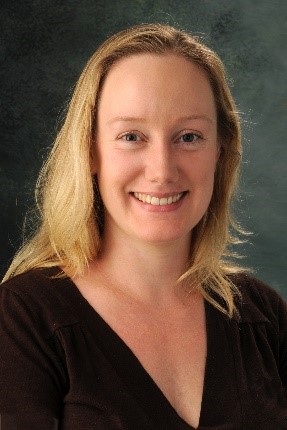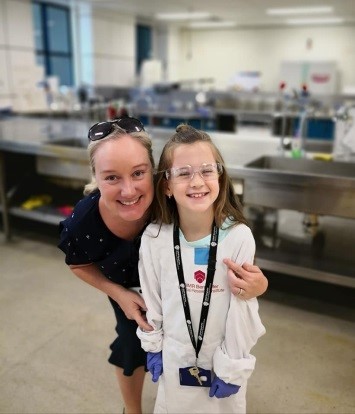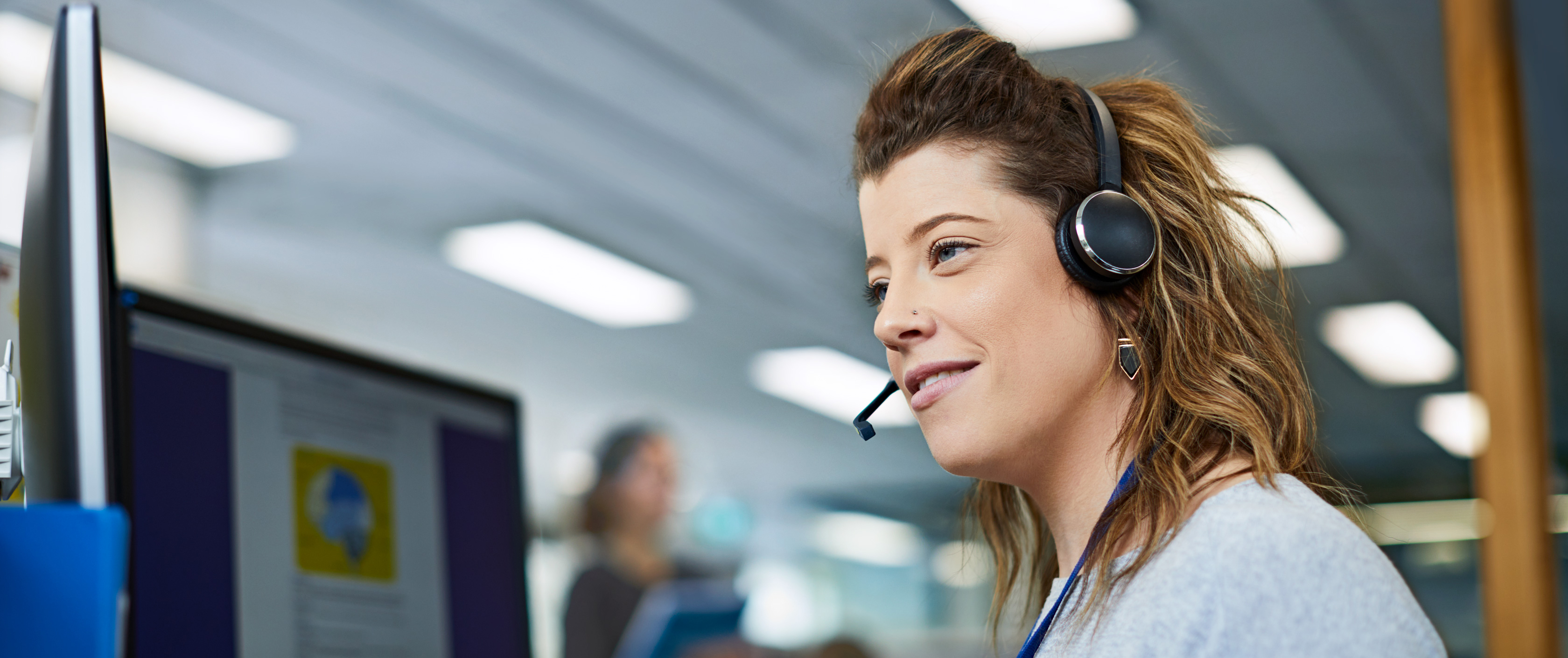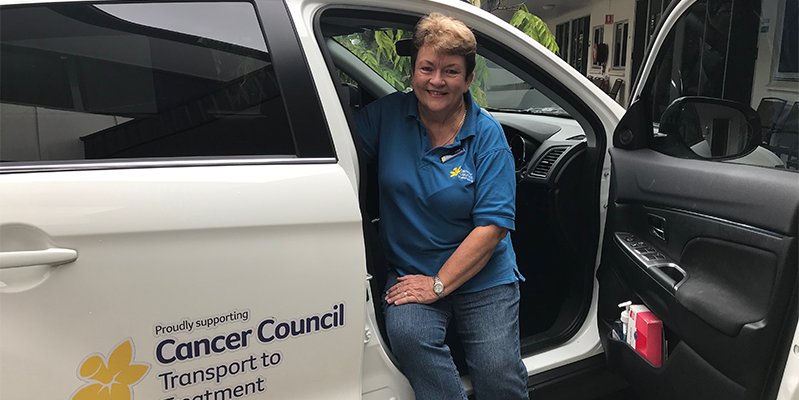On this page you will find information on:
Research grants awarded to help find the next cancer breakthrough
Last month we announced a $2 million investment in cancer research projects in Queensland.
Over the two years, 10 Queensland research teams will receive $200,000 toward their projects.
The research grants will fund world-leading studies into various areas including cancer vaccines, multi-cancer risk genes, immunotherapy, cell death, drug resistance, bowel polyps, and more
This funding will give Queensland researchers a reliable source of income, which makes long-term research and trials possible.
We caught up with grant recipient Associate Professor Vicki Whitehall from QIMR Berghofer Medical Research Institute to see how being awarded a grant makes a difference to her work.
Research Grant Project – High Risk Sessile Serrated Adenomas of the Colorectum
Associate Professor Vicki Whitehall, QIMR Berghofer Medical Research Institute

What is your area of research and why were you attracted to it?
I work on bowel cancer, in particular I want to identify gene changes that promote the growth of polyps and the progression of these polyps to cancer. Bowel cancer is such a common disease, with over 15,000 new diagnoses in Australia annually. I hope my work will reduce this number and in particular reduce the number of patients who do not survive this disease.
Can you tell me about the Cancer Council Queensland funded project you’re working on?
The focus of this project is a particular type of polyp called a ‘sessile serrated adenoma’. This polyp was previously thought to have no potential to progress to cancer, but in the last 15 years we have proven that it actually accounts for at least 20% of all bowel cancers. These polyps have very different clinical features and gene changes compared to other polyps and this has made them difficult to detect and difficult to assign appropriate surveillance guidelines. In this project we will investigate gene changes to predict which of these polyps have potential to progress to cancer, which will inform surveillance guidelines.
What do you hope the outcome of this project will be?
We hope to identify markers that will be used clinically to predict which patients are at highest risk of cancer so that colonoscopic surveillance can be appropriate directed to these patients. Another important outcome will be the identification of patients at minimal risk. This will allow clinicians to reduce surveillance for these patients, reducing potential complications of colonoscopy as well as cost.
How will this have an impact on cancer patients?
Appropriate surveillance will result in the removal of polyps before they progress to cancer. This will reduce the number of patients diagnosed with cancer.
Why is research so important?
Research has made an enormous impact on the quality of our lives. Many diseases have now been eradicated. We have made tremendous impact in all aspects of cancer diagnosis, management and outcomes. Many types of cancer can now be cured or treated as a chronic disease, rather than being a terminal diagnosis. My hope is that in the coming years we will significantly reduce the number of cancers diagnosed, and for patients where a cancer is identified, that an enduring cure will be possible.
What drew you to a career in science?
I have always loved the excitement of solving a puzzle and from when I was young I planned to be a scientist. My grandfather died from cancer when I was 12 years old and that is when I decided to research cancer. For this reason I am particularly motivated to encourage young people with a passion for research.

This photo is from a recent visit I had from a 10 year old already excited by a career in science.
What are you most proud of in your research career?
I am particularly proud of my contribution to the recognition of sessile serrated adenomas as having potential to progress to cancer. I have seen this theory evolve from the hypothesis stage to changing clinical guidelines. I have successfully fostered collaborations that have brought together scientists, gastroenterologists and pathologists to plan projects and ultimately improve patient management.
Why are the research grants that CCQ award so important?
I am incredibly grateful for the support of CCQ. This project would not progress without the very generous contributions from donors and supporters. With government funding at record low levels, it is philanthropic support that enables labs such as mine to persevere. Research is a challenging, rewarding, but ultimately very difficult career. Community support and encouragement, as well as the knowledge that your research is important at the community level, is enormously encouraging.
Thank you to everyone who supports our cause. You may be saving the life of someone’s loved one. With one in two people diagnosed with cancer in their lifetime, it may just be yours.
Find out more about the research we fund >>
Ask 13 11 20

Every day our experienced team on 13 11 20 provide people with support and information on all aspects of cancer.
Here are some questions the team answered recently.
“I need to travel a long distance for cancer treatment and I’m not sure what costs are involved and what is available to me. What can I do?”
People with cancer often need to travel away from home to access cancer treatment facilities and specialists. To help meet this vital need, we have a number of accommodation lodges across Queensland.
These facilities provide ‘home away from home’ accommodation at low or no cost to eligible Queenslanders. People requiring treatment at major treating facilities who live further than fifty kilometres from the facility may be eligible for the Patient Travel Subsidy Scheme. This is provided by Queensland Health and contributes to travel and accommodation costs.
In Brisbane, CCQ has a free transport service which may be able to collect you from the airport or Roma street train station and take you to one of our lodges or accommodation close by; transport you from one of our lodges to a nearby treatment facility; or possibly transport you to treatment facilities via our Transport to Treatment program.
If you are a public patient, most treatments are covered under Medicare however you need to check any additional expenses such as scans and medications, as well as car parking. Social Workers at public hospitals are key to identifying any available supports or financial assistance which may assist to manage the additional unexpected expenses.
“I’ve just been diagnosed with cancer and I feel overwhelmed. Where do I start?”
Firstly, a diagnosis of cancer is overwhelming for most people and we all respond differently to feelings of being overwhelmed or distressed. It is helpful to identify the key specialist or your GP and make an appointment to have a chat about what the diagnosis means, the treatment options, the possible side effects and possible time frames for treatments. Accurate information relevant to your situation is important so that you are dealing with facts and not information unrelated to your situation.
We have resources about a whole range of cancer types, as well as general information about treatments and managing side effects. These resources are regularly reviewed and reflect current practice. We always recommend you speak to your doctor or members of your treating team about your specific information.
It can be helpful to map out the practical issues such as work, finances, home routines and transport so that supports can be identified and people who want to assist are directed to what is most relevant to your needs. Getting support for the emotions you are likely to be experiencing is also helpful so you have a safe place to talk about what you’re feeling – this may be within your family and friend network, as well as a health professional who has knowledge of the cancer experience. We have emotional support services which may be of assistance to you.
“What can I do to reduce my risk of cancer?”
At least one third of all cancer cases can be prevented through healthy lifestyle choices. Each year, more than 13,000 cancer deaths are due to smoking, sun exposure, poor diet, alcohol, inadequate exercise or being overweight. Fortunately, there are a number of lifestyle changes you can make to help reduce your risk of cancer such as:
• Maintain a healthy weight
• Eat a healthy diet
• Reduce alcohol intake
• Exercise regularly
• Quit smoking
• Be SunSmart
• Get vaccinated (HPV and Hepatitis B vaccination)
• Get to know your body and get checked.
Additionally, we encourage you to participate in cancer screening as treatment can be more successful when cancer is found early. There are three national screening programs you can which are free of charge for eligible participants:
• National Bowel Cancer Screening Program
• National Cervical Screening Program
• BreastScreen Australia
Can we help you or someone you love?
If you have been affected by cancer, or know someone who is, we’re here to help. For information and support call 13 11 20 Monday to Friday, 9am to 5pm.
Five tips to have a healthy long weekend this Easter

Easter is just around the corner, and the long weekend is a great opportunity to take a well-earned break, relax and catch up with family and friends.
Unfortunately, it is also a time when most of us tend to over-indulge; while it takes five minutes to consume a 120g Easter egg, it takes 80 minutes of strenuous exercise to burn the kilojoules off.
For those working on their health and fitness, it can be a hard time of year!
Over-consumption of sugary foods, such as chocolate and sweets, can lead to unhealthy weight gain, which can put you at risk of chronic health problems, including some cancers. Even with the odd chocolate here or there, you don’t have to let Easter break your healthy habits.
Here are five tips for how to avoid over-indulging this Easter!
Start the day right.
Make sure you are starting each day with a breakfast rich in protein, fibre and energy, so you aren’t reaching for the chocolate an hour later. Never eat Easter eggs on an empty stomach, as this will wreak havoc on blood sugar levels for the rest of the day.
Eating a nutrient rich breakfast every day, not just over Easter, is important as it will keep you from looking for a quick energy hit later, such as sugar or caffeine. Think omelettes with spinach and tomatoes, or a fruit-based protein shake. Or, swap the sweet one for its real version – a hard-boiled egg full of protein!
Stock the fridge with healthy snacks.
Long weekends and public holidays can sneak up on us, and with many shops closed over Easter, we can easily reach for the chocolate or take-away meals to keep us full! Stock your fridge with plenty of fruit and vegetables, and try to snack on some fruit instead, or make a fresh salad to keep your diet balanced over the long weekend.
Don’t deprive yourself but set a limit.
Having the odd chocolate egg or nibble of a chocolate bunny is fine! Completely avoiding all chocolate over the Easter weekend is unrealistic for most people. Set yourself a limit of how much chocolate you will have and stick to it. A good way to set a limit is look at the serving suggestions included in the nutritional information on the packaging and aim not to go over this amount!
Alcohol is an easy one to over-indulge on when having fun with friends and family as well, so stick to a limit of no more than two standard drinks each day.
Plan exercise with a loved one.
Yes, long weekends are for sleep-ins and relaxing, but it’s good to fit some exercise in where you can. Planning some physical activity with a friend or the family means you’re less likely to hit the snooze button and roll over! Go for a walk or run with a friend or get active with the whole family by kicking a footy in the backyard or park.
Eat dark chocolate. The darker the chocolate, the less sugar and more antioxidants it tends to contain. Switch your sugary milk and white chocolate to its darker variety to get your chocolate fix. The higher the percentage of cocoa, the less likely you are to over-indulge due to the less-sweet taste.
At least one third of all cancer cases can be prevented through healthy lifestyle choices, such as being physically active, so it’s important all Queenslanders strive towards developing healthy habits to help lower their cancer risk.
Find out more about reducing your cancer risk >>
Cathy raises her cup once again

It’s been over 15 years but Cathy Ratcliffe is still raising her cup for Australia’s Biggest Morning Tea. After initially getting involved with a friend, Cathy picked up the baton solo and has been holding a high tea in her home for around 30 friends every year.
“I initially thought it was a fun thing to do, whilst being able to raise some funds. We’d have a few ladies over for tea and scones. Now everyone gets involved, my husband is a great cook so I put him to work in the kitchen and it goes for most of the day from 9.30am to around 3pm.
But Cathy doesn’t stop there, last year organising an additional morning tea in her workplace Remax Real Estate in Cairns.
“We raised over $1300 and invited solicitors and local businesses that we work with. My bosses donate the cost of the food, so all of the $5 entry fee comes to Cancer Council Queensland.“
For Cathy her role as a Transport to Treatment volunteer helps her to see full circle the impact that Australia’s Biggest Morning Tea has in the community.
“I volunteer every Friday morning, driving patients to and from treatment. I love it, I honestly get so much out of it, more than the patients probably. I see first-hand where the money raised from a biggest morning tea goes to work and the difference it makes to people.
“Last year I drove a lady to treatment who had been paying $106 for taxis each day to her treatment, so being able to take some of that burden away was amazing. She said to me ‘you guys are a gift from heaven,’ you just don’t realise the impact you have at the time.“
As Cathy says “everyone has a story” and for many of our volunteers a huge part of their role is to listen and share in those stories. By getting involved with Australia’s Biggest Morning Tea and raising funds for research, prevention and support you can help ensure the story is a positive one.
If you’re thinking about hosting a morning tea, Cathy’s tip is to start small – “Just invite a few friends over and put the kettle on, it doesn’t have to be a huge event. Even $50 makes a huge difference.”
To host a morning tea, your way, this May, visit biggestmorningtea.com.au or share the message with your friends and family about how easy it is to get involved.
The official Australia’s Biggest Morning Tea date is Thursday 23rd May 2019 however participants can register to host at any time throughout May or June.
Bowel cancer – a simple home test could save your life
The Australian Government recently announced $10 million in funding to launch a nationwide mass media campaign to increase rates of bowel cancer screening.
To understand the enormous impact of bowel cancer on our community, consider this – bowel cancer takes more Australian lives than breast, prostate or skin cancer.
It’s devastating, but the great tragedy is that these lives could so easily have been saved, because if found early, 90% of bowel cancers can be successfully treated.
Do the at-home test
If you receive the screening test in the mail, please do it.
It’s a very effective at-home test that can help detect bowel cancer in its early stages, when there are no symptoms or warning signs.
The screening test is sent to our homes free when we’re an eligible age (50-74), as part of the National Bowel Cancer Screening Program. However at the moment, only around 41% of all Australians take the test.
At Cancer Council, we’re determined to change this. If we can get the participation rate up to 60 per cent by 2020, and sustain this, we could prevent close to 84,000 deaths over the next 20 years.
Help us spread the word
Please help us reduce the devastating impact of bowel cancer by telling friends and family about the importance of doing the screening test.
If you use social media, you can like and share the video, our social media posts or the link to our website bowelcancer.org.au.
Share your story
Mark is a bowel cancer survivor. Sadly his mother died of bowel cancer at just 67.
“Had it been picked up at the earliest possible time, her chances of survival may have been greater.”
If you or a loved one has had bowel cancer, or even if you’ve used the home test, we’d love to hear from you. With your help we can educate others about the risks.
Share your story here.
If you have a bowel screening test at home, please do it now.
Or if you threw it out, can’t find it, or want to check your eligibility, contact the National Bowel Cancer Screening Program on 1800 118 868.
Alternatively, if you’d like to speak to Cancer Council please call 13 11 20.
Thank you for your kind support of Cancer Council. Without you, work such as this just could not happen.

